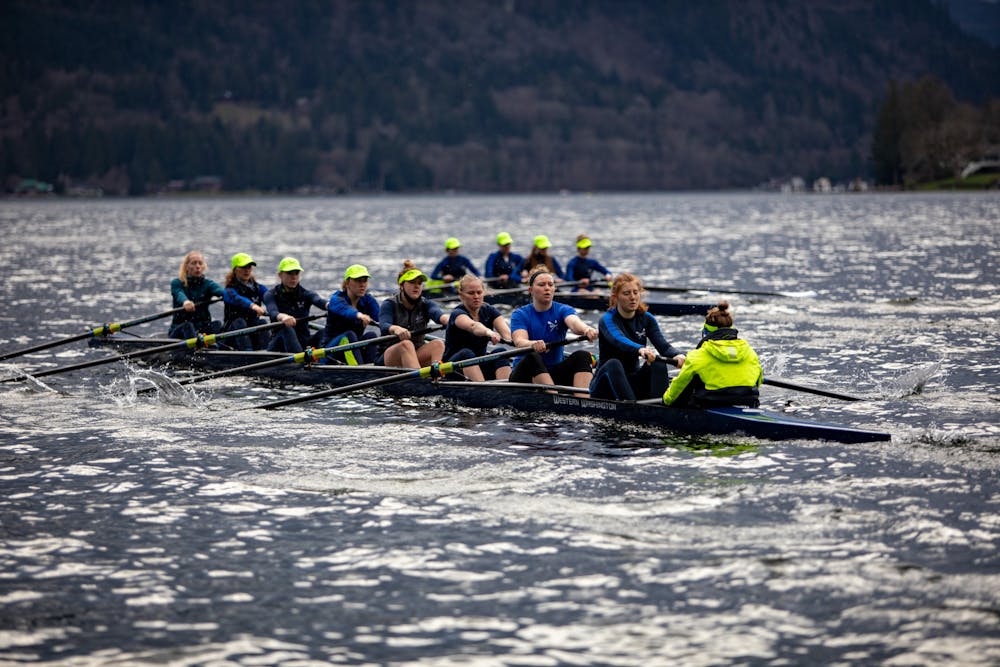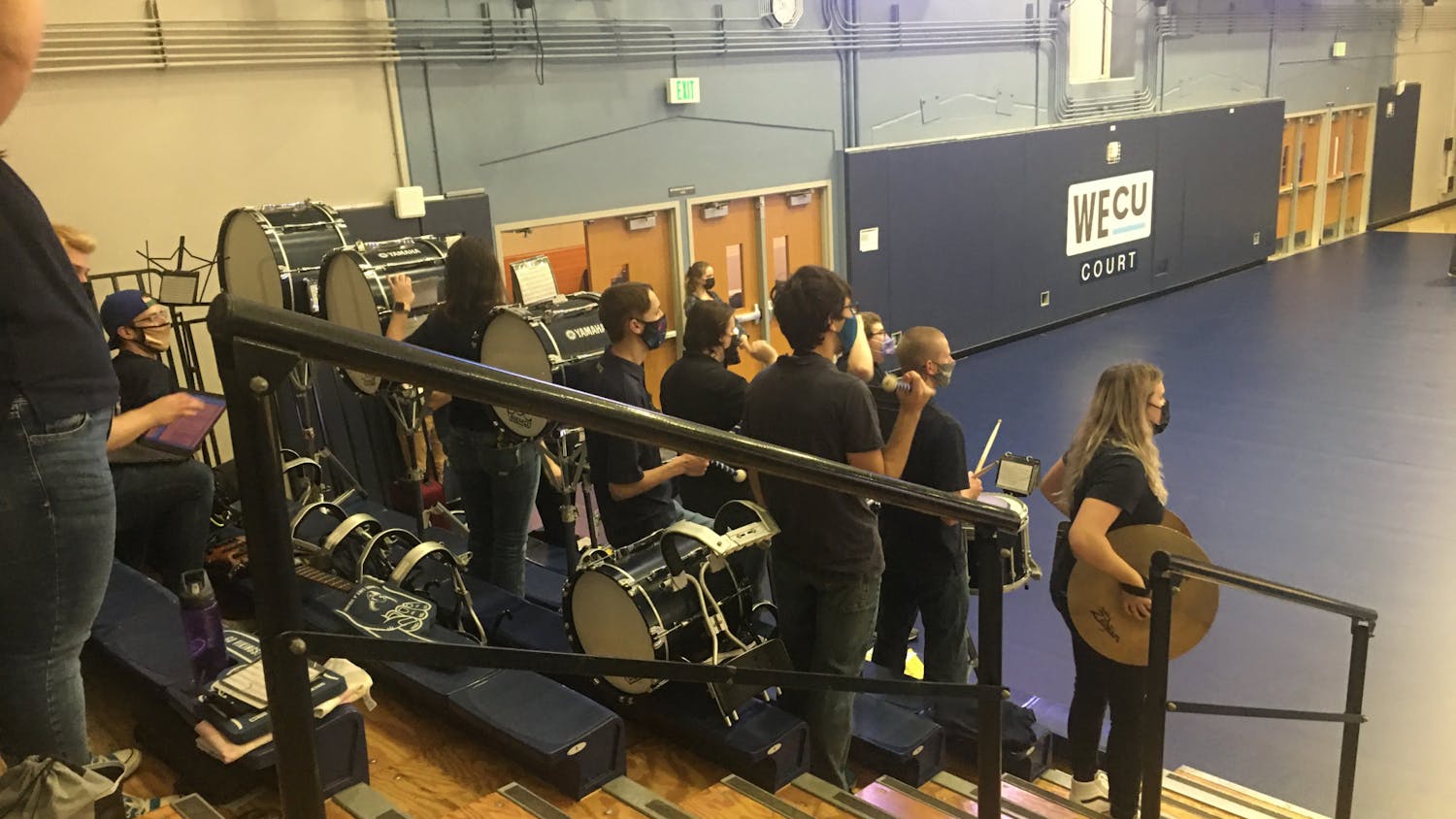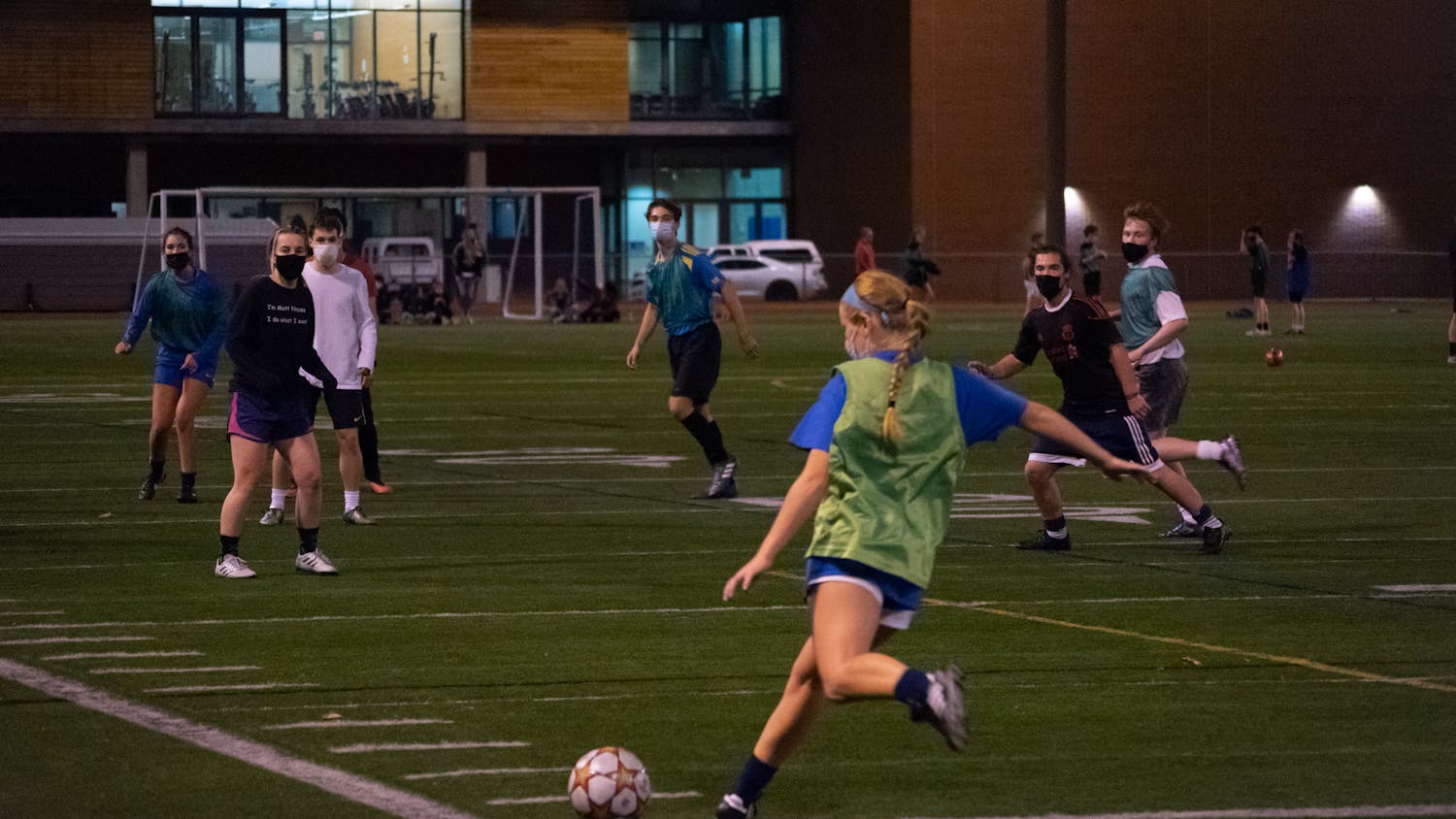Walk-on athletes on the Western Washington University women’s rowing team have faced new challenges due to COVID-19 not allowing a tryout process to occur last year.
When an athlete is not invited directly to play for a team or awarded an athletic scholarship, they are considered a walk-on athlete.
For the Western women’s rowing team, try-outs were canceled last year and they had no walk-on athletes until two girls joined in the spring of 2021, said third-year rower Yuki Saburi.
With fewer teammates comes a close group but less competition.
Fifth-year rower Maddie Bangasser said the girls got closer than before because the team was small, so their bond was strengthened. She said that the camaraderie was not ideal for a competitive environment.
“Without many spare rowers there wasn’t a lot of reason to excel in your own training because you weren’t fighting to keep your seat against other teammates,” Bangasser said.
Across the border in Canada, a similar situation occurred at Simon Fraser University for their women’s rowing club.
Laura Kirk, club president at SFU, said since the beginning of the pandemic, their numbers dwindled as they were not allowed to hold practice.
The club was able to hold tryouts this year, which fewer people showed up to than usual. Typically there are 30-35 athletes who try out; this year they had 19. The team now has 21 athletes, Kirk said.
“The numbers were lower, but the people who were interested made it very clear that they were interested,” Kirk said.
College athletes are having to deal with situations they didn’t have to as a result of COVID-19 which has made it more difficult to become involved in their college sports, said Daniel Day, director for athletics and recreation at Whatcom Community College.
“COVID-19 has certainly changed the game in regards to athletics in the collegiate world, really turning everything we do upside down and making us rethink how we approach things,” Day said in an email.
John Fuchs, the rowing coach for Western, said the team now stands at 26 girls; last year there were only 14 athletes on the Western women's row team.
Now that there are more girls on the team again the competitiveness has returned, Bangasser said.
“It just automatically adds an element of, oh, I have to make sure that my spot on the team is secure,” Bangasser said.
With fewer athletes last year, the girls could only fill the varsity boats and therefore didn’t have to compete for a spot in them.
“COVID-19 gave us a sense that there wasn’t as much competition because everyone was definitely going to be in a boat, you weren’t fighting for a seat to be in a race,” said sixth-year Adele Houston. “Now, it’s back on.”
Western’s women’s row team has won eight national titles, despite being a purely walk-on-based sport and a large portion of their athletes being first-time rowers, Saburi said.
The team is made up fully of walk-ons and are attending Western because they want to go to school there, it’s something they all have in common. The girls didn’t come to Western to row, they came to Western for their education, Fusch said.
Kirk said the SFU women’s row club is all walk-ons as well.
The desire to be a part of the team is crucial to why the Western women’s rowing team has been so successful in the past, Saburi said.
“They’re not there because they got recruited or a bunch of money was thrown at them,” Saburi said. “Every person at the end of the day wants to be getting up at 4 a.m.”
The lack of practice this past year as a result of COVID-19 only means more work down the road.
“It’s gonna suck, but there’s no other word to describe it,” Saburi said. “It’s just gonna be down in the dirt-digging. That’s how it feels. But it’s just a necessary evil to lead up to that high of all our hard work paying off.”
Margaret Baumgartner (she/her) is a science reporter for The Front. She is majoring in news/editorial journalism and environmental science. Outside of reporting, Margaret enjoys hanging out in The Planet newsroom, eating apples or playing video games. You can contact her at margaretbaumgartner.thefront@gmail.com.






